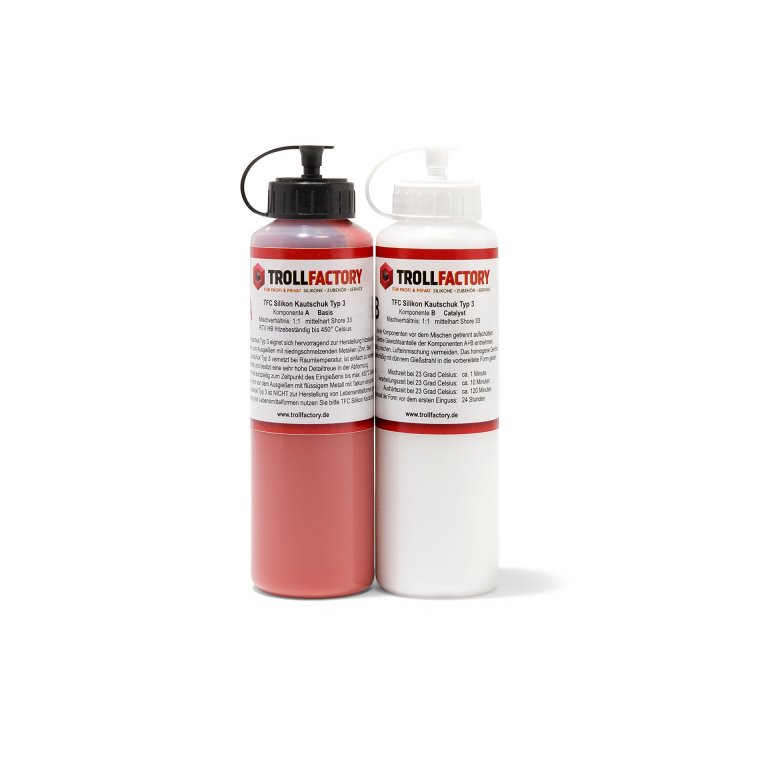TFC silicone rubber Type 3 is ideal for the production of heat-resistant molds for pouring with low-melting metals such as tin or lead. At the time of pouring, there is no permanent-temperature resistance. The molds produced are temperature-resistant up to 450 °C for a short time. At the same time, the forms are elastic, hard-wearing, and also suitable for the illustration of undercuts.
With TFC silicone Type 3, it is possible to produce both single and multi-part molds. Impressions can be made of original models made of wood, glass, metal, plastic, wax, and ceramic casting compounds. The silicone rubber is particularly suitable for pouring low-melting metals. Attention must be paid to the absolute dryness of the mold. Before each pouring, the mold should be treated with talcum as a separating and flow agent. This gives better casting results and protects the mold from burns.
All water-soluble and solvent-containing casting compounds can be cast into the molds produced. The water-soluble casting compounds include, for example, relief casting compounds such as Stewalin, Plastalin Super, Keraflott or gypsum, Keramin, Alabit, modeling and building plaster, cast clay, cement, concrete, etc. For solvent-containing casting compounds, e.g. resin and epoxy resin, the mold should be pretreated with a release agent, since casting resins can lead to embrittlement of the mold after repeated casting. Seed casting compounds (soap-glycerin), for the production of soap or waxes for the production of candles, can also easily be brought into the molds.
Please note that the silicone is not tested for skin and mucous membrane tolerability, nor for use in conjunction with food.
We have updated our product range. TFC silicone rubber Type 3 replaces Köraform A 50 T 10:1.
